"Hang On Sloopy" is a 1964 song written by Wes Farrell and Bert Berns. Rhythm and blues vocal group the Vibrations were the first to record the tune in 1964. Atlantic Records released it as a single, which reached No. 26 on the Billboard Hot 100 chart.

Daniel Decatur Emmett was an American songwriter, entertainer, and founder of the first troupe of the blackface minstrel tradition, the Virginia Minstrels. He is most remembered as the composer of the song "Dixie".
"Cleveland Rocks" is a rock song by Ian Hunter from his 1979 album You're Never Alone with a Schizophrenic. The song is seen as a de facto anthem in Cleveland, Ohio. The song was played every Friday at 5:00 PM on Cleveland radio station WMMS beginning in 1979 and is used as a victory song for the city's sports teams. In recognition of "Cleveland Rocks", Hunter was given the key to the city by Cleveland mayor Dennis Kucinich on June 19, 1979. A cover of the song by The Presidents of the United States of America was used as the theme song for The Drew Carey Show.

The Kaapse Klopse, formerly known as the Coon Carnival and officially called Cape Town Minstrel Carnival, is a Cape coloured minstrel festival that takes place annually on 2 January in Cape Town, South Africa. It is also referred to as Tweede Nuwe jaar. As many as 13,000 minstrels take to the streets garbed in bright colours, either carrying colourful umbrellas or playing an array of musical instruments. The minstrels are self-organised into klopse. The custom has been preserved since the mid-19th century.
"Helpless" is a song written by Canadian singer-songwriter Neil Young, recorded by Crosby, Stills, Nash & Young (CSNY) on their 1970 album Déjà Vu.

"Arthur's Theme " is a song performed and co-written by American singer-songwriter Christopher Cross, which was the main theme for the 1981 film Arthur starring Dudley Moore and Liza Minnelli. The song won the Oscar for Best Original Song in 1981. In the US, it reached number one on the Billboard Hot 100 and on the Hot Adult Contemporary charts during October 1981, remaining at the top on the Hot 100 for three consecutive weeks. Overseas, it also went to number one on the VG-lista chart in Norway and was a top-ten hit in several other countries. The song became the second and last American number-one hit by Christopher Cross. It was included as a bonus track only on the CD and cassette versions of his second album, Another Page, released in 1983.

"Dixie", also known as "Dixie's Land", "I Wish I Was in Dixie", and other titles, is a song about the Southern United States first made in 1859. It is one of the most distinctively Southern musical products of the 19th century. It was not a folk song at its creation, but it has since entered the American folk vernacular. The song likely cemented the word "Dixie" in the American vocabulary as a nickname for the Southern U.S.

"Old Dan Tucker," also known as "Ole Dan Tucker," "Dan Tucker," and other variants, is an American popular song. Its origins remain obscure; the tune may have come from oral tradition, and the words may have been written by songwriter and performer Dan Emmett. The blackface troupe the Virginia Minstrels popularized "Old Dan Tucker" in 1843, and it quickly became a minstrel hit, behind only "Miss Lucy Long" and "Mary Blane" in popularity during the antebellum period. "Old Dan Tucker" entered the folk vernacular around the same time. Today it is a bluegrass and country music standard. It is no. 390 in the Roud Folk Song Index.
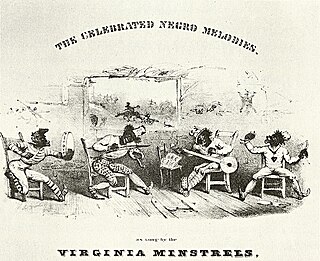
Hokum is a particular song type of American blues music—a humorous song which uses extended analogies or euphemistic terms to make sexual innuendos. This trope goes back to early blues recordings and is used from time to time in modern American blues and blues rock.
"Sway" is a song by the English rock band the Rolling Stones from their 1971 album Sticky Fingers. It was also released as the b-side of the "Wild Horses" single in June 1971. This single was released in the US only. Initial pressings of the single contain an alternate take; later pressings include the album version instead.
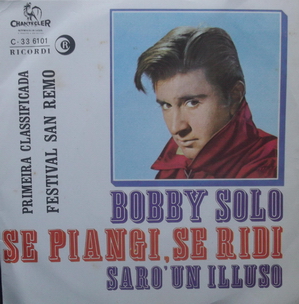
"Se piangi, se ridi" is a song written by Gianni Marchetti, Roberto Satti and Mogol. It was first performed during the 15th edition of the Sanremo Music Festival, in January 1965, when Italian singer Bobby Solo and American folk band The New Christy Minstrels performed two different versions of the song, winning the competition.
"The Ballad of Billy the Kid" is a song by American singer-songwriter Billy Joel from the album Piano Man. It was also issued as a single in the UK backed with "If I Only Had The Words ."

"A Hot Time in the Old Town", also titled as "There’ll Be a Hot Time in the Old Town Tonight", is an American popular song, copyrighted and perhaps composed in 1896 by Theodore August Metz with lyrics by Joe Hayden. Metz was the band leader of the McIntyre and Heath Minstrels.
Old American Songs are two sets of songs arranged by Aaron Copland in 1950 and 1952 respectively, after research in the Sheet Music Collection of the Harris Collection of American Poetry and Plays, in the John Hay Library at Brown University. Originally scored for voice and piano, they were reworked for baritone and orchestra.
Ching-a-Ring Chaw is a song from the early days of the minstrel show tradition. A rewritten version frequently performed in modern times comes from Aaron Copland's 1952 Old American Songs song set.
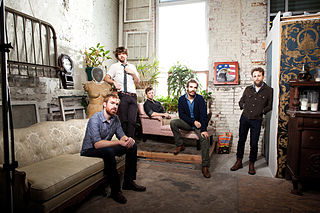
Red Wanting Blue is a rock and roll band led by Scott Terry that formed in Athens, Ohio in 1996. In 1999 the band relocated its headquarters to Columbus, Ohio, the city Red Wanting Blue now calls home. RWB has been touring for nearly two decades playing around 200 live shows a year. Red Wanting Blue is known as an explosive live act to follow, with Terry being compared to some of the most entertaining frontmen in the industry.
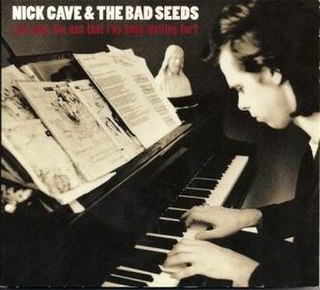
"(Are You) The One That I've Been Waiting For?" is the second single from the album The Boatman's Call by Nick Cave and the Bad Seeds. The single, released on May 19, 1997, was pressed on 7" and 12" vinyl, as well as a standard CD single, though the song failed to chart anywhere except the U.K., where it only made it to #67. A promotional music video for the song was also recorded.
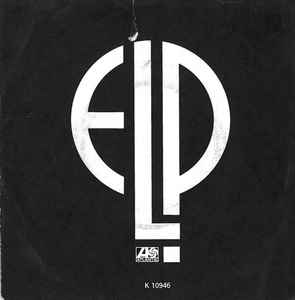
"Fanfare for the Common Man" is an instrumental piece of music adapted and played by the English progressive rock band Emerson, Lake & Palmer, from the group's 1977 Works Volume I album. Adapted by Keith Emerson from Aaron Copland's 1942 piece of the same name, it is one of their most popular and enduring pieces.
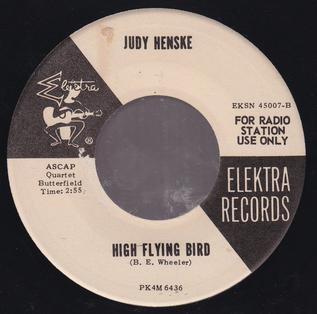
"High Flying Bird" is a song written by American folk and country singer-songwriter Billy Edd Wheeler, and first recorded by Judy Henske in 1963. It was performed and recorded by many musicians and groups in the mid and late 1960s, and was influential on the folk rock genre.











